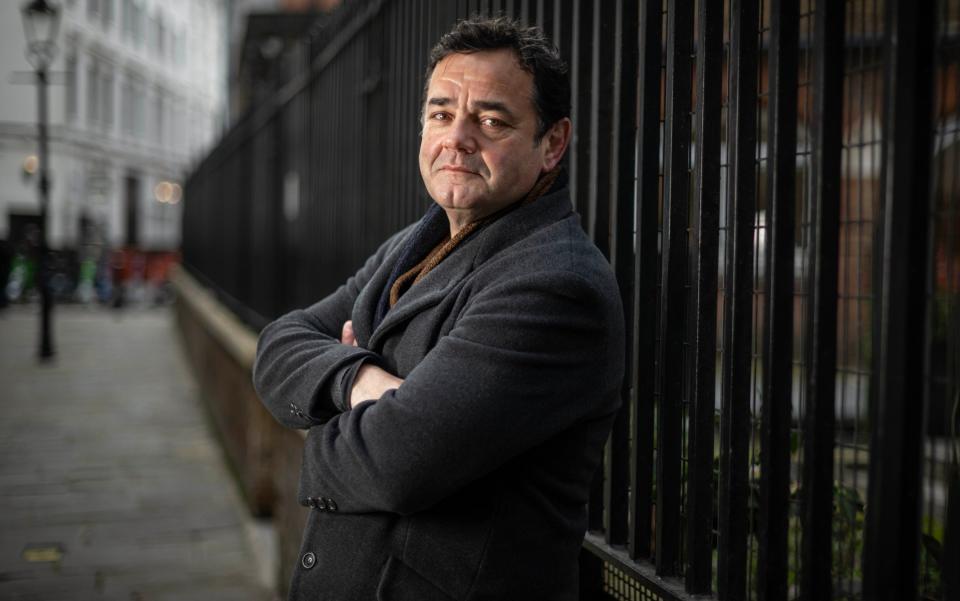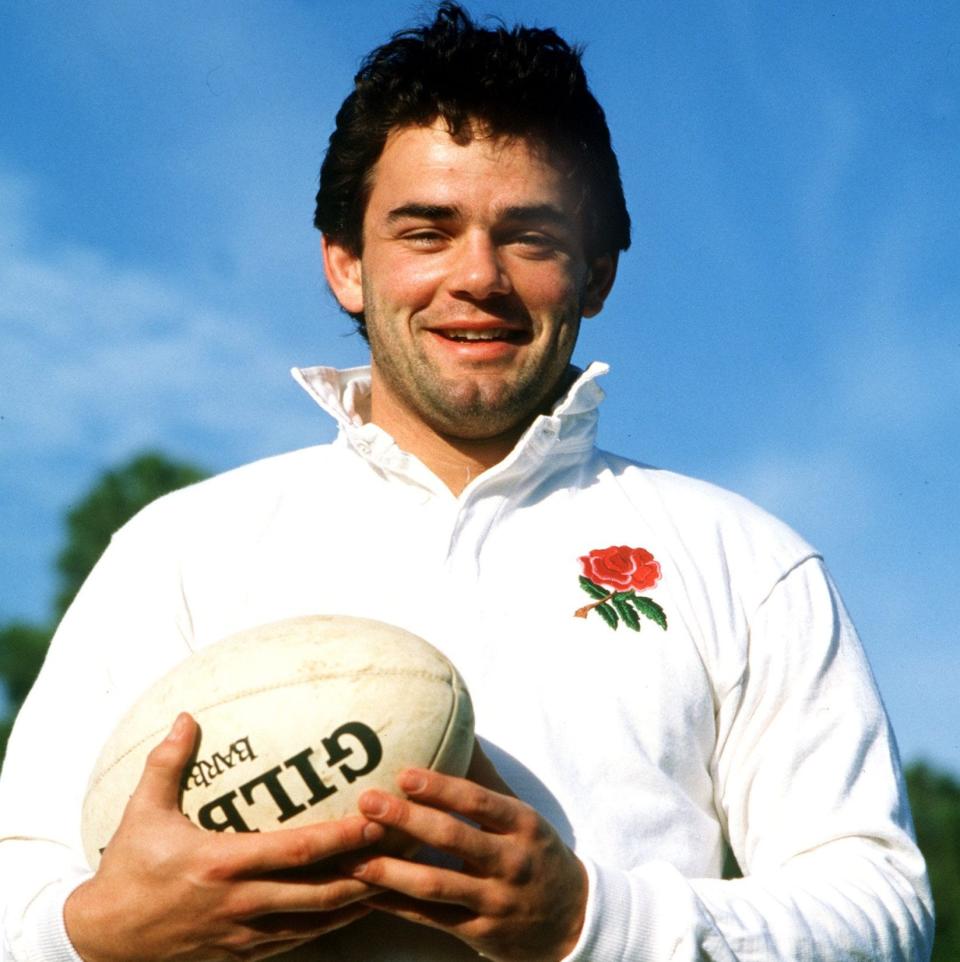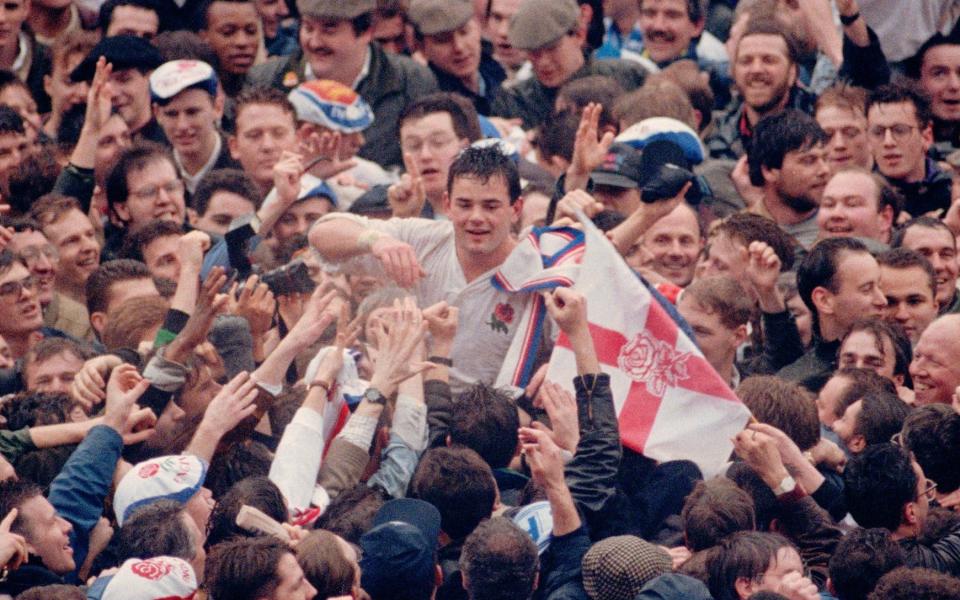Will Carling interview: I was so frustrated with RFU I pinned three of them against the wall

Spend enough time with Will Carling and you come to a quick conclusion: his deep love for the game of rugby still burns as brightly as it ever has, desperate for the sport to thrive. Has that passion landed him in trouble in the past? Absolutely. It is why, at the grand old age of 22, he told the assembled media to f--- off in his third press conference as England captain. It is also why Carling is convinced that the Rugby Football Union’s committee members were desperate to get rid of him during his eight-year spell as captain, which yielded an appearance in the 1991 Rugby World Cup final and three Grand Slams (to end an 11-year drought).
“Without being funny, I put three of them up against the wall at different functions because I was so f------ frustrated with them. That’s not clever,” Carling says over lunch.
Be it payment for attending an event in the amateur days, or arguing for players’ partners to be flown to away games, Carling ponders how quickly the RFU must have regretted Geoff Cooke’s decision to make him the youngest captain in English rugby history.
“They must have thought a 22-year-old, who was meant to go in the military, privately-educated – he must be perfect to be England captain. And he turns out to be this nightmare who argues with them the whole time, wants things changed from a players’ point of view, is never satisfied.

“There was a whole list of those kind of things that were like, ‘Why can’t this bloody Carling just go away?’ I knew they had been after me for quite a while. After the 1991 Grand Slam we didn’t do a press conference because we were fed up with the press ringing hotel rooms, the players had had enough. I remember Dudley [Wood, RFU secretary] going, ‘You will get in that room’ and telling him, ‘No, I won’t’. They were furious. But, sort it out then, guys. You don’t look after us in any shape or form.”
Not forgetting the almost comical circumstances in which Carling was axed as captain before the 1995 Rugby World Cup, caught on a hot mic referring to the committee as “57 old farts”. Carling watched the Pilkington Cup final between Wasps and Bath at home and, with the volume low, was unable to decipher what the crowd were chanting. Rob Andrew, his team-mate and the Wasps No 10, later told him: “You ruined that game didn’t you. The crowd spent the whole time chanting your name.”
After Andrew and Dean Richards rejected the captaincy offer, Carling bumped into Martin Bayfield ahead of the press conference to reinstate him as England captain providing he publicly apologised, two days after it had been stripped away. “Bayfield said, ‘I’m devastated’. When I asked why he replied, ‘Take That have broken up and you are being reinstated as captain, I don’t know how much a man can take’.”
England’s players today could not be further removed from those times yet while there are different political quandaries and the game looks alien to 30 years ago, core principles remain the same. Which is why Carling as a leadership mentor in the previous regime under Eddie Jones, having captained England in 59 of his 72 Tests, made a lot of sense. He worked closely with Owen Farrell in particular.
“I think it’s sad if that is the end of his England career and that’s the way it finished. He is a very proud, passionate England rugby player. And a very good one. I know there was a lot of comment in the media, on social media, and a lot of it was not complimentary. I think sadly my view on it, a huge amount of that frustration that was aimed at Owen was frustration at the way England are playing and delivering on the pitch. And that actually was not his call.”
Farrell’s generation have to handle social media whereas Carling was hounded by paparazzi in the 1990s, the face of the sport on such a large scale that he appeared on primetime television alongside Mr Blobby – “The funniest bit was I genuinely hurt Noel Edmonds when I trod on his feet, I could hear him squeal” – and has previously discussed the effect that attention had on him.
“In this day and age people ask, could you do it with social media the way it is? I don’t know. It was fairly intense back then but if you captain England, you know you are going to get more scrutiny than most.”
His friendship with Princess Diana, however, was an entirely different scale of scrutiny.
“Front page is very different from back page. Yeah, it was not nice. Hey, a lot of that is my own fault, you can’t complain. You have to learn. Relationships that I got wrong... so, that’s what they got fascinated by. You look back on it and you think it was all blown out of all proportion, but it made a good story.”
When I ask which moment of his career gives him the most pride, I expect to hear about ending England’s Grand Slam drought in 1991. Instead, Carling recalls his old midfield partner Jeremy Guscott persuading him to hobble to a pub on crutches for a drink after Carling’s final game as captain in 1996. The narrative when he was appointed was the “posh little idiot” trying to win over some of England’s great hard men: Paul Ackford, Mike Teague, Peter Winterbottom, Paul Rendall, Richards. He walked into the pub that night and they were all there waiting for him.

“That blew me away,” says Carling, visibly emotional. “They were my heroes before I played for England. For me that was what it was all about. It’s not 80,000 people, because they don’t know who you are. It was them. They had watched everything. They had looked after this annoying, posh little idiot who was meant to be their captain. If they thought I had done OK, it was a really great moment for me.” Out of that imposing group Richards was the hardest to win over, the offer of a beer lying on the floor of the changing rooms at Murrayfield perhaps a rare sign of acceptance.
A round of quickfire questions follow regarding some of the game’s current burning topics, such as Test eligibility. “The one issue I would have is once you make your choice, you make your choice,” he says. “I don’t think once you have played for one country you should be able to play for another. That doesn’t seem right to me, maybe I’m an old fart because of that. If you have a grandparent, fine, those are the rules. But surely you can’t change your mind. That seems to be getting a bit… you can’t have your cake and eat it.
“Whereas someone like Bundee Aki [who qualified for Ireland on residency], watching him play, I don’t believe there is any lack of passion and commitment. I don’t think the Irish regret that in any shape or form. The guy, I don’t think he does.
“Why not? He’s living up here, his family live here, that is what it’s about. This is where my family and friends are and who I play for. I get that and don’t have an issue with that.”
As for the sport relearning to embrace the attraction of its physicality again while crucially maintaining safety, he says: “Rugby needs to use technology in the best way to safeguard players from injuries. But the other part is, rugby is a physical game. The appeal for people to watch it, for some of us to play it, is the gladiatorial nature of it, the bravery of people who play it.”
Mixed in are more golden soundbites either about his own career – “I played the first few years of professionalism which were the most boring f------ years of my life, because no one knew what professionals should be” – while lauding the current England women’s team. “What a great set of ambassadors for young girls in terms of bravery and commitment and respect and discipline.”
Having discussed at length the quality of leadership in the sport (or lack of) either in the past or the present, you wonder why Carling has not decided to take the game by the scruff of the neck himself. “I love the game. It’s exceptional. At some point, depending on what leadership we see, who knows?” The man who went after the old farts running the show. What a twist that would be.

 Yahoo Sport
Yahoo Sport 





































